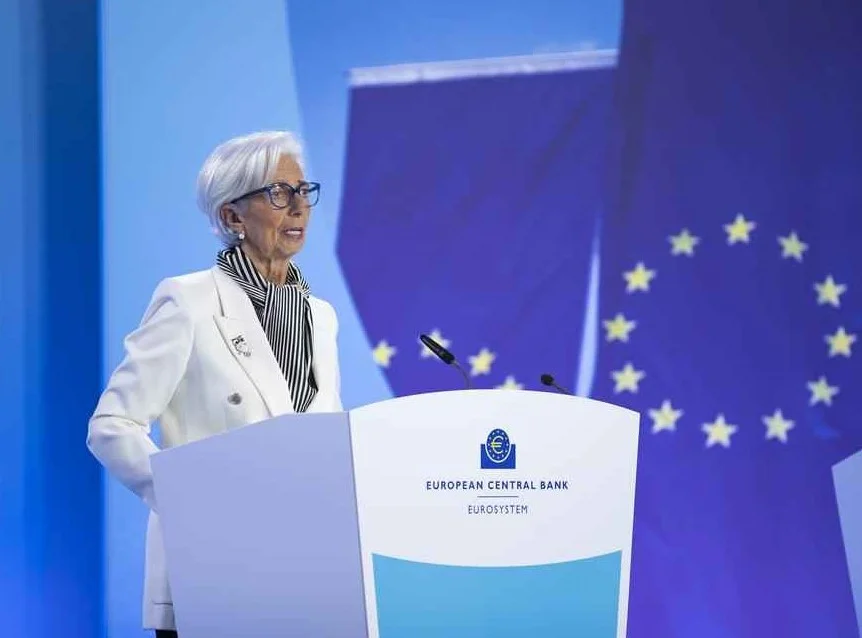In Summary:
- In the latest Economic Watch report, the EU narrowly avoided a technical recession in Q4 2023, with stagnant GDP, highlighting the ongoing challenges in Europe’s economic recovery.
- Despite better-than-expected readings, the report underscores a growing divergence among eurozone economies, with southern nations showing growth while Germany faces contraction, signaling a prolonged recovery journey.
Jan 31 (TopNews) – In the most recent Economic Watch report, the statistical office of the European Union disclosed that both the EU and the 20-member eurozone narrowly sidestepped a technical recession in Q4 2023, with GDP remaining stagnant.
Keep Reading:
- Crisis in the Middle East: Biden Faces Election-Year Pressure Over Iran Response
- Principal Narrates the Short-lived Journey and Last Moments of Form One Student who died 10 days after Joining
- China Urges Iran to Curb Houthi Attacks in Red Sea, Threatens Trade Relations
Echoing earlier concerns, Bert Colijn, a senior economist at ING, acknowledged that “after the buoyant post-pandemic reopening phase, the economy has now entered a phase of prolonged weakness.”
Following a 0.1 percent contraction in Q3 2023, the GDP in both the EU and the eurozone remained flat in the last quarter, preventing the European economy from slipping into a technical recession.
Colijn further noted, “We don’t expect a material pickup in GDP growth in the first quarter, in fact, we only expect a material improvement in the eurozone economy much later in the year.”

Compared to 2022, the eurozone’s 2023 growth was 0.5 percent, notably lower than initial estimations. Quarter-to-quarter data revealed a 0.1 percent growth in the first two quarters, followed by a 0.1 percent decline in Q3. Eurostat data showcased a growing divergence among eurozone economies.
Echoing the report’s findings, Colijn emphasized that “the economy has now entered a phase of prolonged weakness.”
Southern countries like Spain and Portugal posted growth rates of 0.6 percent and 0.8 percent, respectively. In stark contrast, Germany, the largest eurozone economy, contracted by 0.3 percent, and France’s GDP remained flat in the last quarter.
Reflecting on this, the report highlighted that “growth in the last quarter was mainly supported by southern European countries.”

Various factors contributed to the stagnant eurozone economy in the past year, including the European Central Bank’s aggressive rate hike cycle, high energy costs, and weak demand.
ING economist Colijn pointed out that “the most aggressive rate hike cycle by the European Central Bank (ECB) was launched to tame inflation.”
Slow wage growth has impacted consumer buying power, and soaring energy costs have compelled eurozone companies to navigate slimmer profit margins. Some German companies, particularly in energy-intensive sectors, have chosen to suspend production or relocate to countries with lower energy costs.
Under President Christine Lagarde, the ECB maintains a restrictive monetary policy, intending to assess the economy through a broader range of indicators such as employment and PMI. Lagarde anticipates a weak eurozone economy in the short term but envisions a pickup in momentum later this year.
Echoing this sentiment, the report emphasized that “the eurozone economy will continue to be weak in the near term but is expected to pick up momentum later this year.”
However, the ifo Institute in Germany paints a bleaker picture, predicting a contraction in Germany’s output in Q1 2024, signaling a potential recession.
Colijn insisted, “There are no signs of any imminent recovery.”
While some indicators suggest a bottoming out, including real wage growth and easing financial conditions, ING economist Colijn insists that “there are no signs of an imminent recovery.”
Experts foresee a material improvement in the eurozone economy later in the year rather than an immediate uptick in GDP growth in Q1. The Economic Watch report echoes the persistent challenges faced by Europe’s economic recovery journey.
